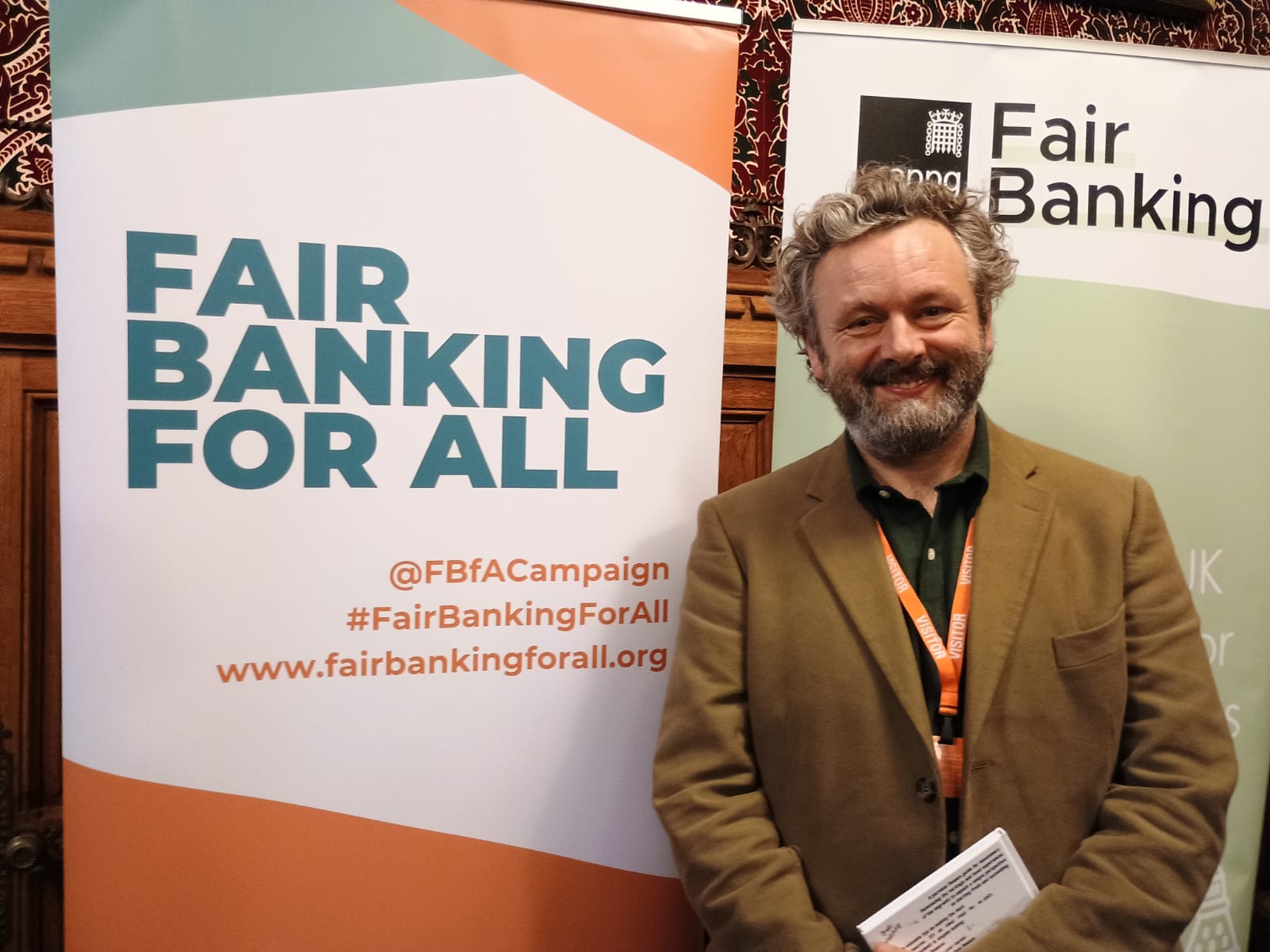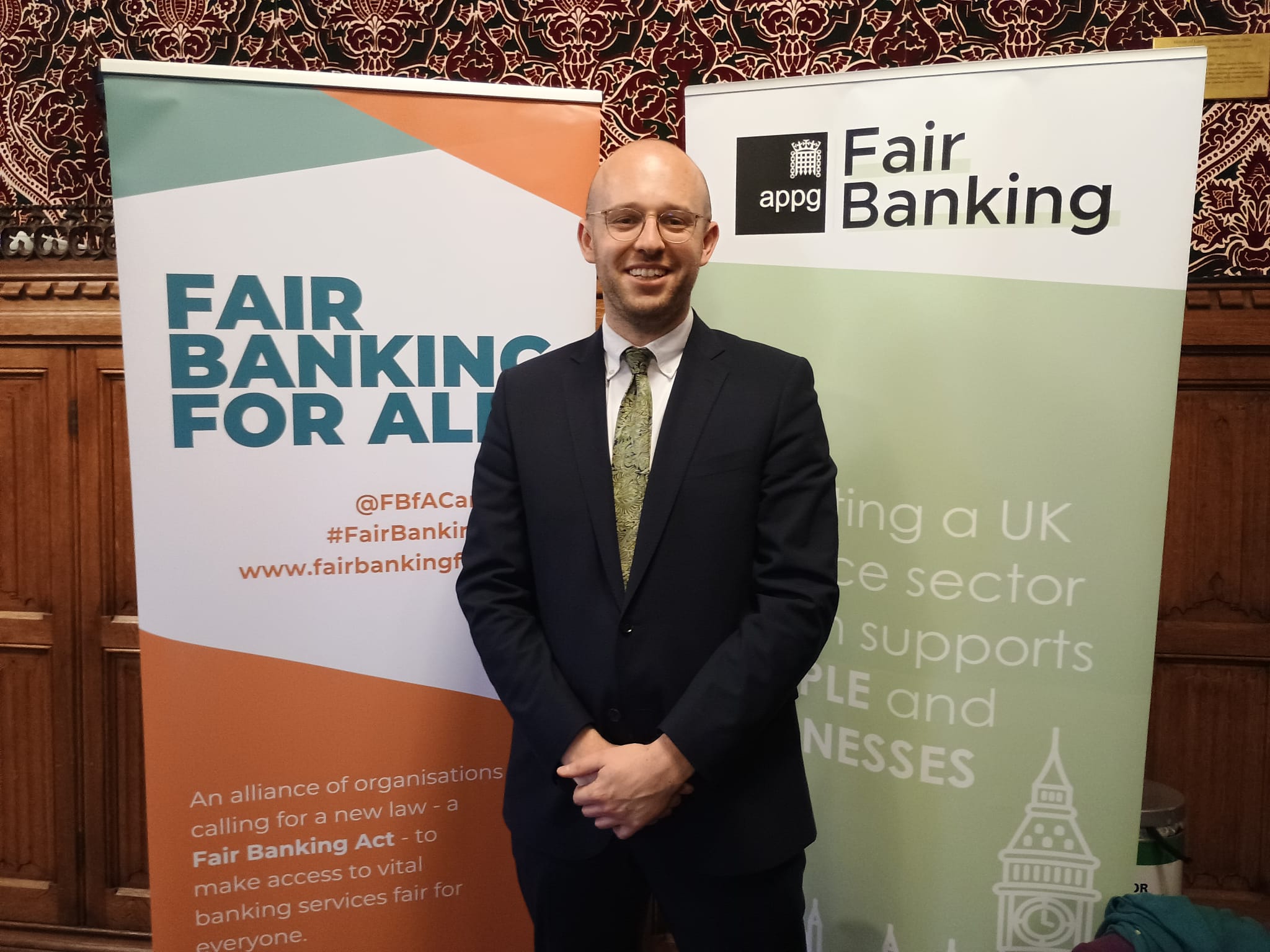Michael Sheen joins calls for a Fair Banking Act to tackle crisis of unaffordable credit

Michael Sheen
Actor and debt campaigner Michael Sheen has joined calls for the government to pass legislation to help tackle the crisis of unaffordable credit and problem debt in the UK.
In 2022-2023, more than nine million individuals were declined for credit, with millions relying on pay-day-lenders and buy-now-pay-later schemes with high interest rates. At its worst, lack of access to affordable credit means hundreds of thousands of people find themselves turning to loan sharks, while viable businesses remain stuck, unable to develop and create jobs.
Campaigners are calling for a Fair Banking Act to help ensure that everyone can access essential financial services and support.
Speaking at an event in Parliament on Monday, Mr Sheen said: “Anyone can find themselves in a place where they need credit to make ends meet or to get through a difficult time.
“The lack of affordable credit for people on lower-incomes is harming individuals and families, but also businesses and communities. Whole regions are seeing their growth held back. We can’t keep waiting and hoping that things will get better. We need something to change now. The Fair Banking Act could be the thing which really makes the difference.”
The event in parliament was organised by the All Party Parliamentary Group on Fair Banking, alongside the Fair Banking for All Campaign – a group including credit unions, Community Development Finance Institutions (CDFIs), fintechs, charities and policy experts who are calling for a Fair Banking Act to help increase access to affordable credit. MPs, peers and financial regulators were among the attendees.

Lord Hatton MP
Lloyd Hatton MP, chair of the APPG, said: “We need a Fair Banking Act to help increase affordable lending in every corner of the country, ensure small businesses have access to the financial support they need, and guarantee that nobody is financially excluded by the mainstream banks.
“Only then will we deliver sustained economic growth across the whole of the UK.”
Before the election, Labour announced that financial inclusion would be a priority for them in government, with plans being developed for a comprehensive national Financial Inclusion Strategy. The Fair Banking for All Campaign is calling for a Fair Banking Act to be a central pillar of this strategy, to help grow the responsible finance sector. The idea is based on a successful example from the US, where similar legislation has successfully increased access to financial services and support for people on low-incomes and from marginalised communities.
As well as leading mainstream banks to improve their own provision of affordable credit for underserved communities, the proposed legislation would also incentivise partnerships between high-street banks and institutions such as credit unions and CDFIs, which are often best placed to provide tailored services that meet the needs of individuals and small businesses who have been turned down by larger institutions.
Recently published research from the Fair Banking for All Campaign estimated that a Fair Banking Act in the UK could increase fair and affordable lending to individuals by £2bn a year – equivalent to the total amount owed to loan sharks. This would help to pull the rug out from under the illegal lending market, by providing people with a safe and affordable alternative when they’re in urgent need. Additional support to small businesses could create or maintain just under 10,000 jobs over five years, including in some of the most economically deprived parts of the country – where small businesses currently find it hardest to get loans from high street banks.
Robert Kelly, chief executive of the Association of British Credit Unions Ltd, was another of the speakers at the event. He said: “We need more humanity in our banking system.
“At a time when more and more people need access to affordable credit, their options are becoming more and more limited. People are being turned down by high-street banks because of their income level or credit score, and so they’re turning to high-cost credit or illegal lending.
“Credit unions give them an alternative. The sector continues to serve communities and employers across the country at record levels through the provision of ethical and responsible products and services.
“There’s so much demand out there for this kind of alternative – but we need a Fair Banking Act so we can grow to meet that demand, and help millions more people”
Theodora Hadjimichael, chief executive of Responsible Finance which represents CDFIs in the UK, said: “Community Development Finance Institutions (CDFIs) invest into underserved places and people, unlocking potential for businesses, social enterprises and households.
“For economic growth to happen, we need lenders that get to know businesses and understand people’s lives, make fair lending decisions that take these into account, and offer affordable finance, and incentives to ensure that growing demand for affordable, ethical, credit can be met.
“That’s why Responsible Finance is part of the campaign calling for a Fair Banking Act.”








